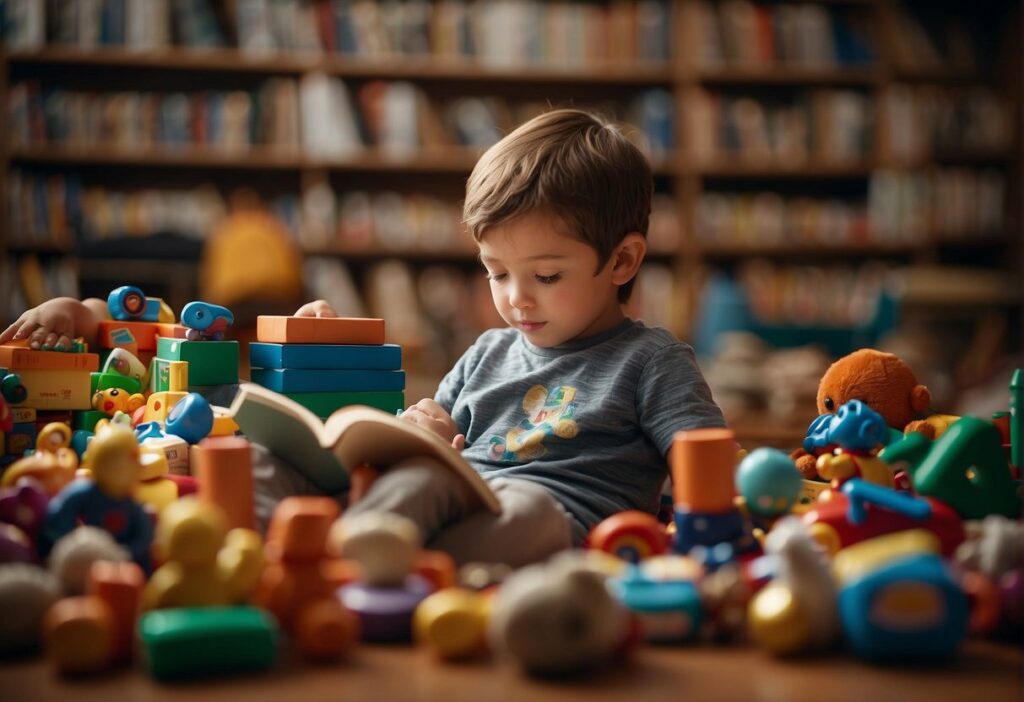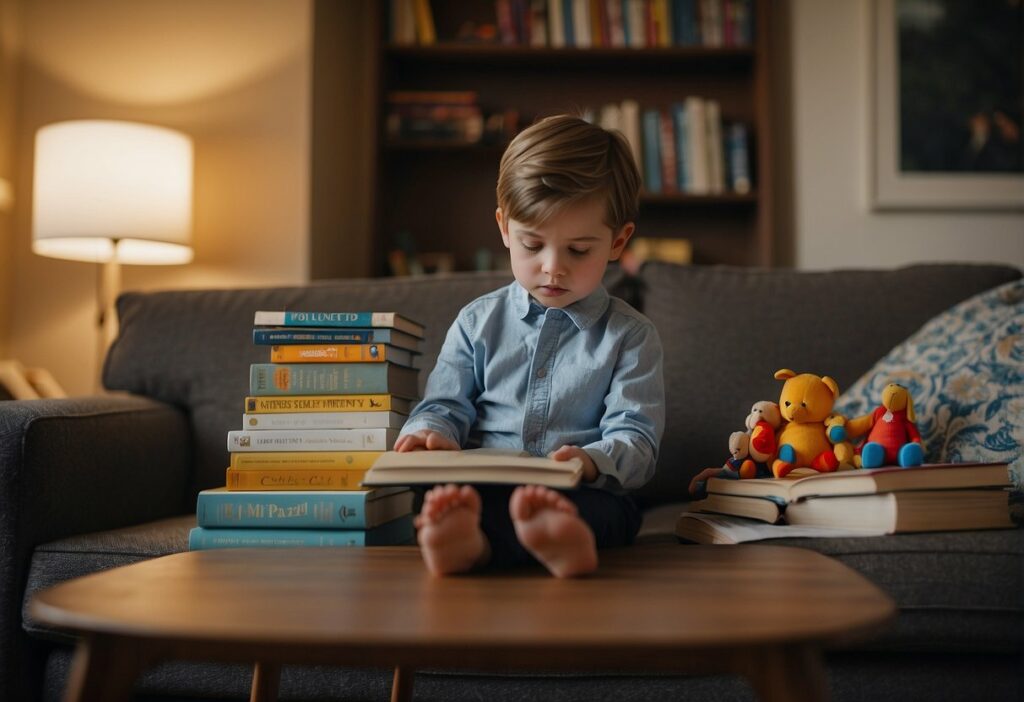How Can I Help My Children Deal with Our Divorce? Simple Steps for a Tough Time

Going through a divorce is not just a challenging transition for parents. It can also have significant emotional and developmental impacts on children.
As a parent, my instinct to protect my children from the pain and confusion that can come with this change is strong.
Acknowledging that my kids may process the divorce differently than I do, I’ve learned that a key aspect of helping them cope is open and age-appropriate communication.
By offering honest and loving explanations, I can provide them with the understanding they need to navigate the upcoming changes.
To foster a sense of security, I’ve realized the importance of maintaining predictable routines and stability in their daily lives.
While the family dynamic is shifting, providing a consistent schedule and environment helps mitigate feelings of uncertainty.
Alongside this, I’ve seen the value in leaning on support systems, including family, friends, and professionals.
These resources not only assist me and my ex-partner in managing our own emotional hurdles but also offer my children additional outlets for support and guidance.
Key Takeaways
- Honest communication helps children understand and cope with divorce.
- Consistent routines provide children with a sense of stability.
- Support systems benefit both parents and children during the transition.
Understanding the Impact of Divorce on Children

Divorce can shake up a child’s world, affecting their emotions and behavior. I’ll break down the complexities here.
Emotional Challenges
Children processing divorce often grapple with a cocktail of feelings: confusion, fear, sadness, and even guilt.
It’s common for them to wonder if they’re to blame for the changes in the family, and they might cling to the hope of reconciliation.
I’ve seen kids have a hard time expressing what they feel, which can be frustrating for both them and the adults trying to help them.
Behavioral Changes
Spotting shifts in behavior can give clues about their internal turmoil. Some might withdraw, become quieter, or resist authority more.
Others may act out for attention, struggling with rules they once followed.
It’s like their internal compass is spinning, and they need to recalibrate their bearings post-divorce.
I keep an eye on changes in:
- Sleep patterns: More nightmares or trouble falling asleep.
- School performance: Declines in grades or interest in school activities.
- Interactions with others: They might either isolate themselves or become uncharacteristically aggressive.
Remember, each child is unique, and so is their response to divorce.
Communicating about the Divorce

When I talk to my children about our upcoming divorce, it’s crucial to do it in a way that is honest, yet sensitive to their feelings and understanding.
Choosing the Right Time to Talk
I make sure to choose a time to discuss the divorce when my children are most likely to be calm and not preoccupied with other activities.
For example, I avoid starting this conversation right before bedtime or early in the morning before school. Weekends can be an opportune time as they allow for more space to process the information and ask questions.
Setting the Tone for Conversation
I set a supportive tone during the conversation. I remain calm and assure my children that their feelings are valid and important.
My body language is open, and I maintain eye contact to show I am fully present in the discussion.
I use simple, clear words and keep the explanation appropriate for their age.
Addressing Their Concerns
I listen actively to my children’s concerns. Here’s a quick list of steps I follow while addressing their queries:
- Listening first: I give them the floor to voice their thoughts.
- Acknowledging feelings: I recognize their emotions by saying things like, “I understand that you’re feeling scared.”
- Providing reassurance: I reassure them of our unchanging love as parents.
- Being honest: I answer their questions truthfully without overloading them with details.
- Offering continued support: I make it clear that I am always available to talk more whenever they need to.
Maintaining Stability and Routines

In the midst of divorce, I know how vital it is for my children to have a stable environment. This stability comes from keeping their daily routines as consistent as possible.
Keeping Consistent Schedules
I ensure my kids wake up, eat, play, and sleep at the same times they’re used to.
It’s like a calendar that doesn’t change, keeping school drop-offs, homework times, and bedtimes on track.
- Morning Routine:
- Wake up at 7:00 AM
- Breakfast at 7:30 AM
- Afternoon Routine:
- Pick up from school at 3:00 PM
- Snack at 3:30 PM
- Evening Routine:
- Dinner at 6:00 PM
- Homework at 7:00 PM
- Bedtime Routine:
- Bath at 8:00 PM
- Bed by 8:30 PM
Providing Reassurance of Love
I talk to my children every day, making sure they know that both parents love them no matter what.
It’s important that they don’t feel neglected.
I listen to their concerns, hugging them often, and using phrases such as:
- “I love you always, no matter what’s happening between me and your other parent.”
- “You can talk to me about anything, I’m here for you.”
Support Systems and Professional Help

I’ve realized that having a robust support system in place can be incredibly beneficial during times of family change, such as a divorce.
It’s crucial for my children to feel supported not just by me, but also by other trusted individuals and professionals.
Leveraging Family and Friends
Family: For starters, I reach out to close relatives who my kids feel comfortable with.
Having regular visits or check-ins with them can provide a familiar sense of security and maintain continuity in their lives.
- Example: Aunt Jane hosts a weekly movie night, giving the kids something to look forward to.
Friends: I encourage my children to spend time with their friends.
Playdates and outings can offer enjoyable distractions and a sense of normalcy.
- Routine: Consistent meet-ups with friends can help maintain a routine for my children.
Seeking Therapy or Counseling
Therapists: A good therapist can equip my children with coping strategies. They also provide a safe space to express feelings.
- Individual Therapy: One-on-one sessions allow children to work through personal feelings about the divorce.
- Group Therapy: Sometimes, being with peers in similar situations helps children realize they’re not alone.
Counselors: If therapy isn’t feasible, school counselors are an accessible resource. They can provide emotional support during the school day.
- School Support: Regular check-ins at school help my kids manage their emotions in a separate environment.
